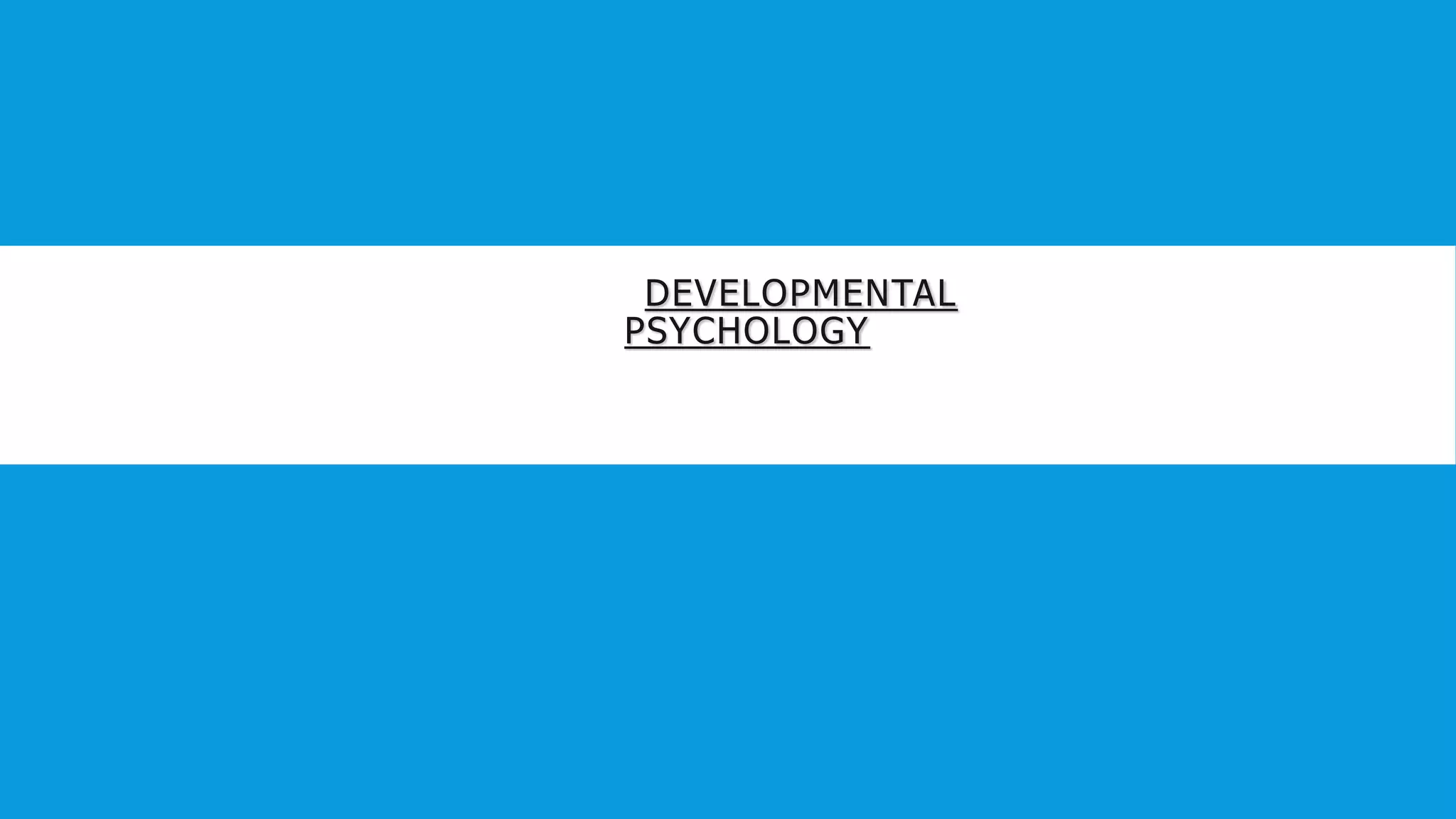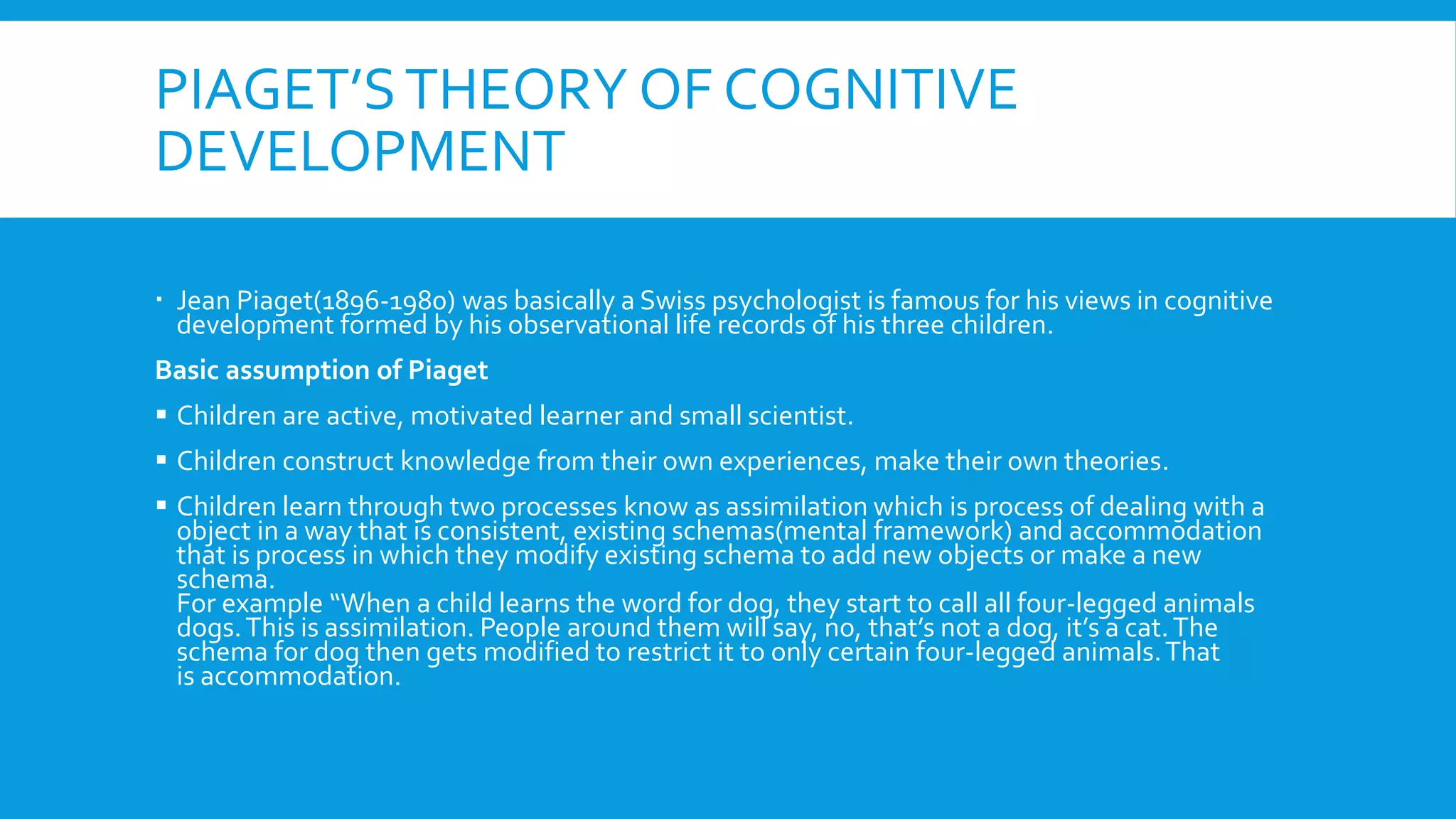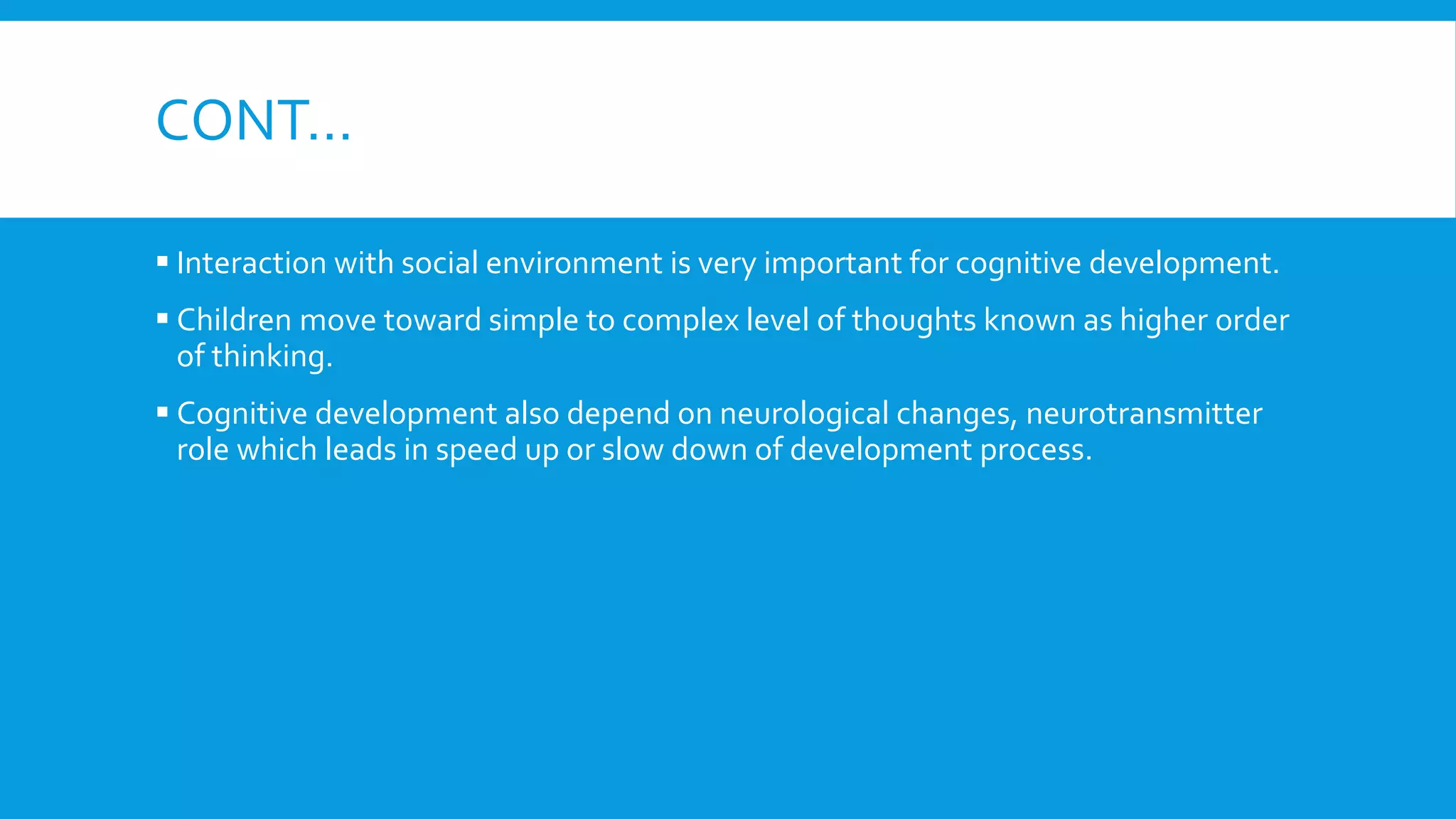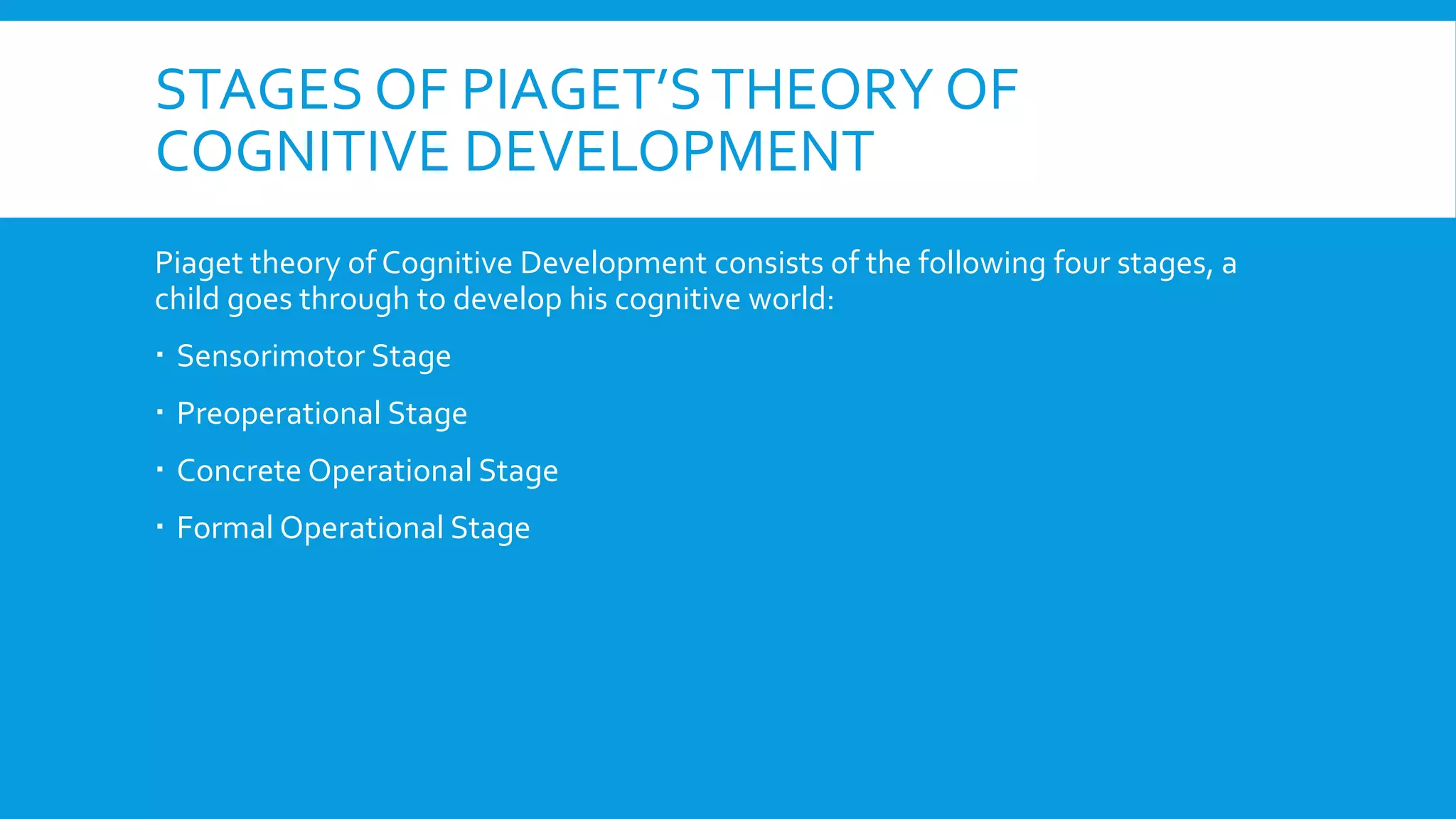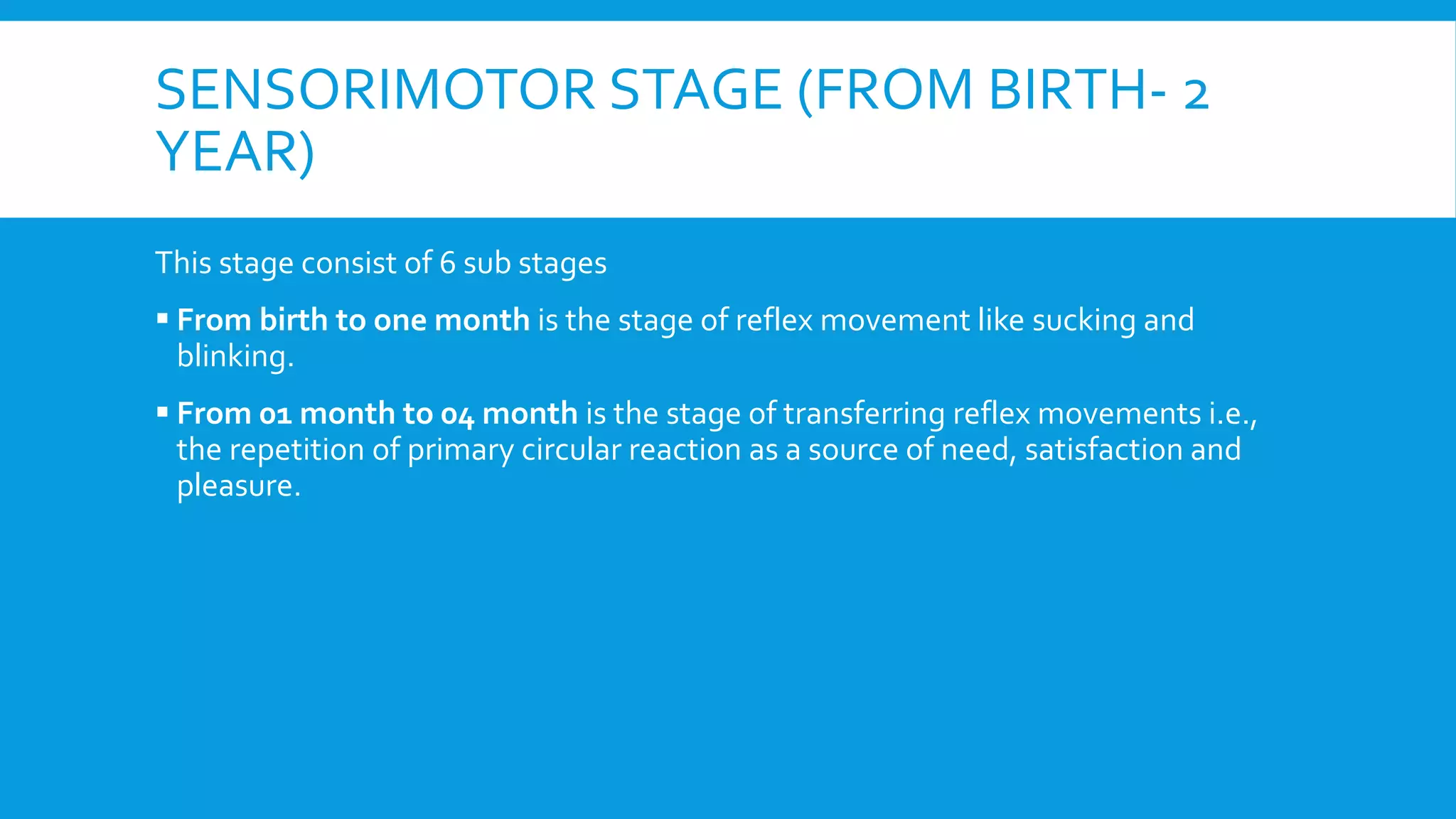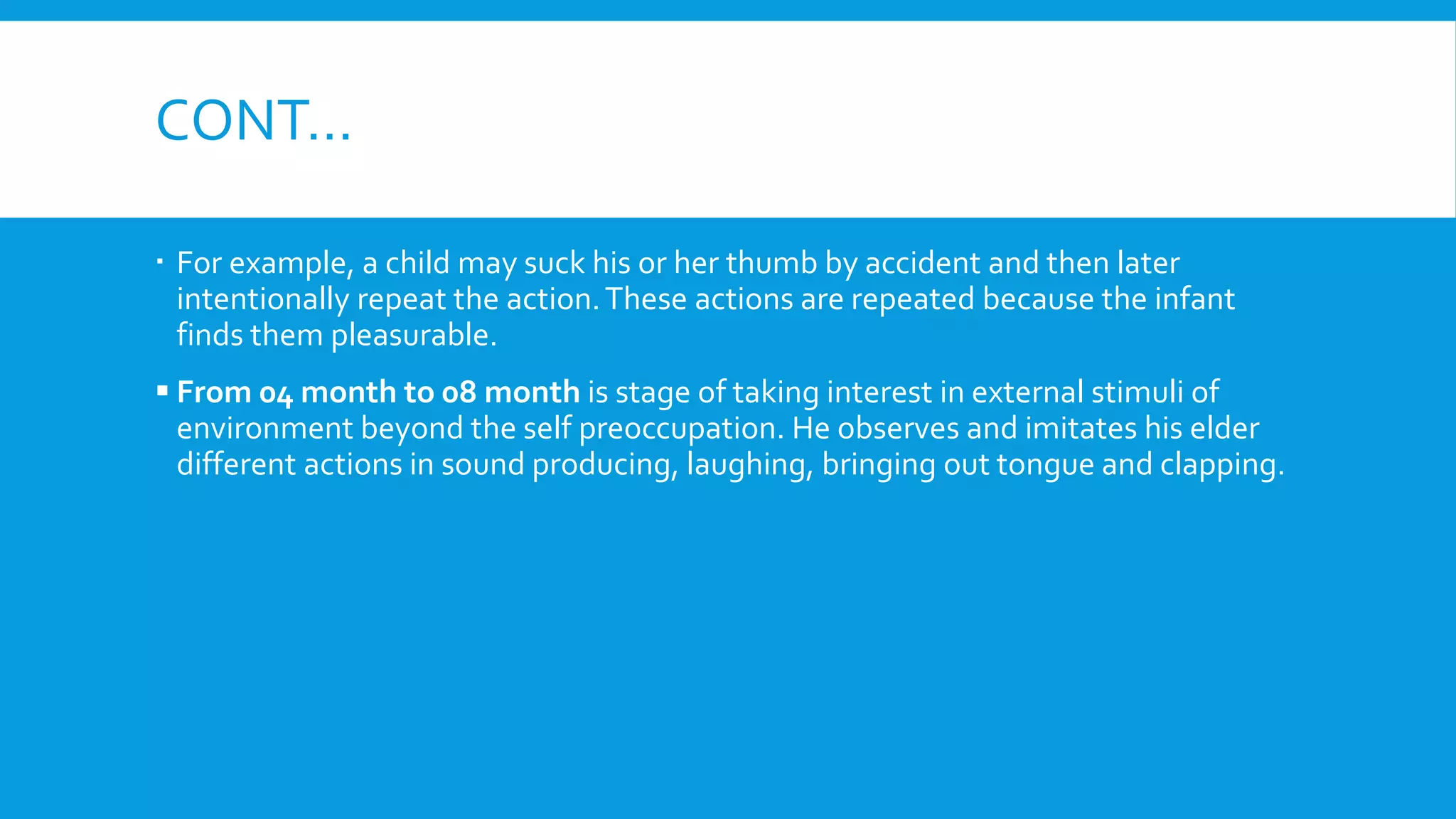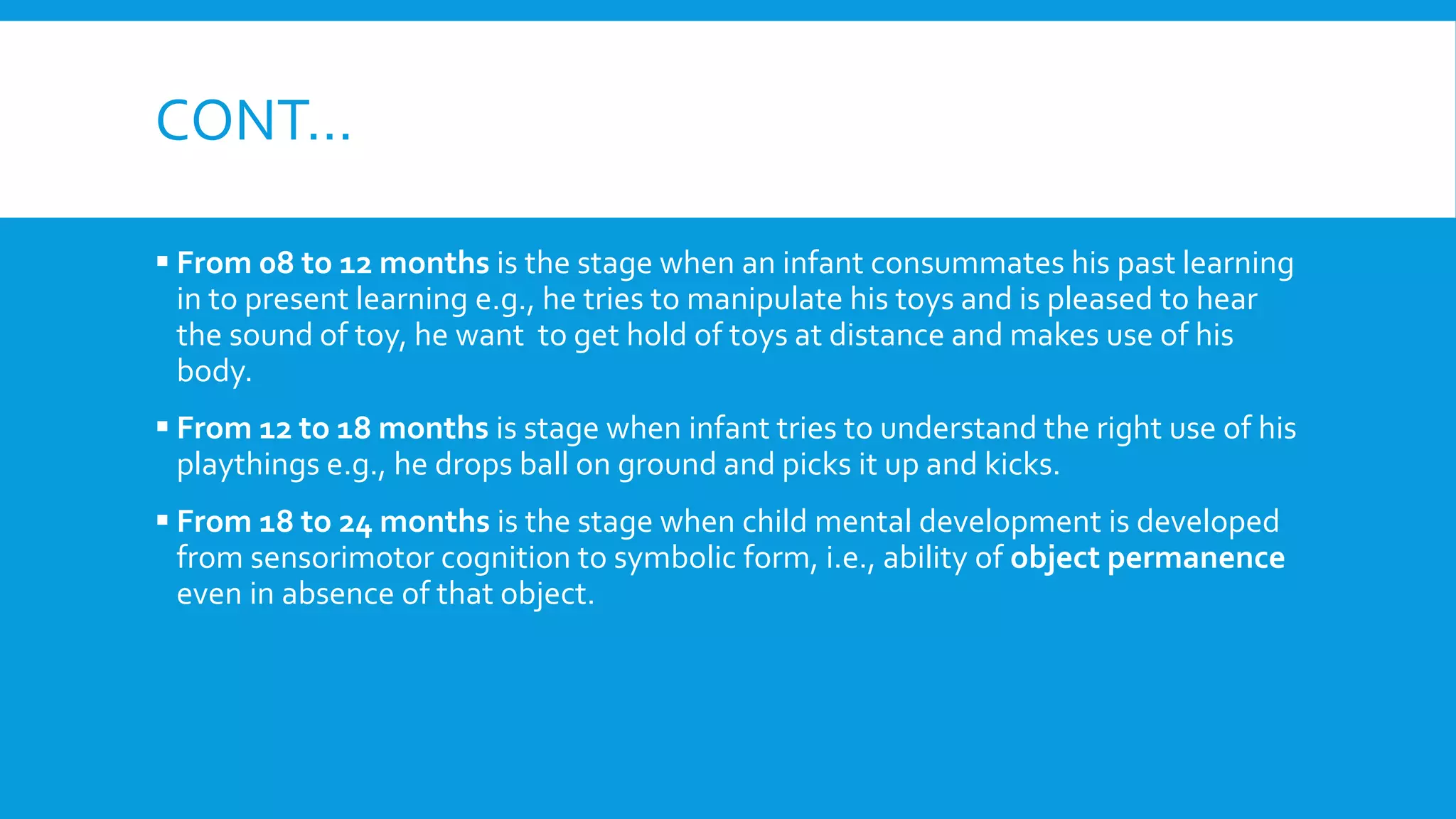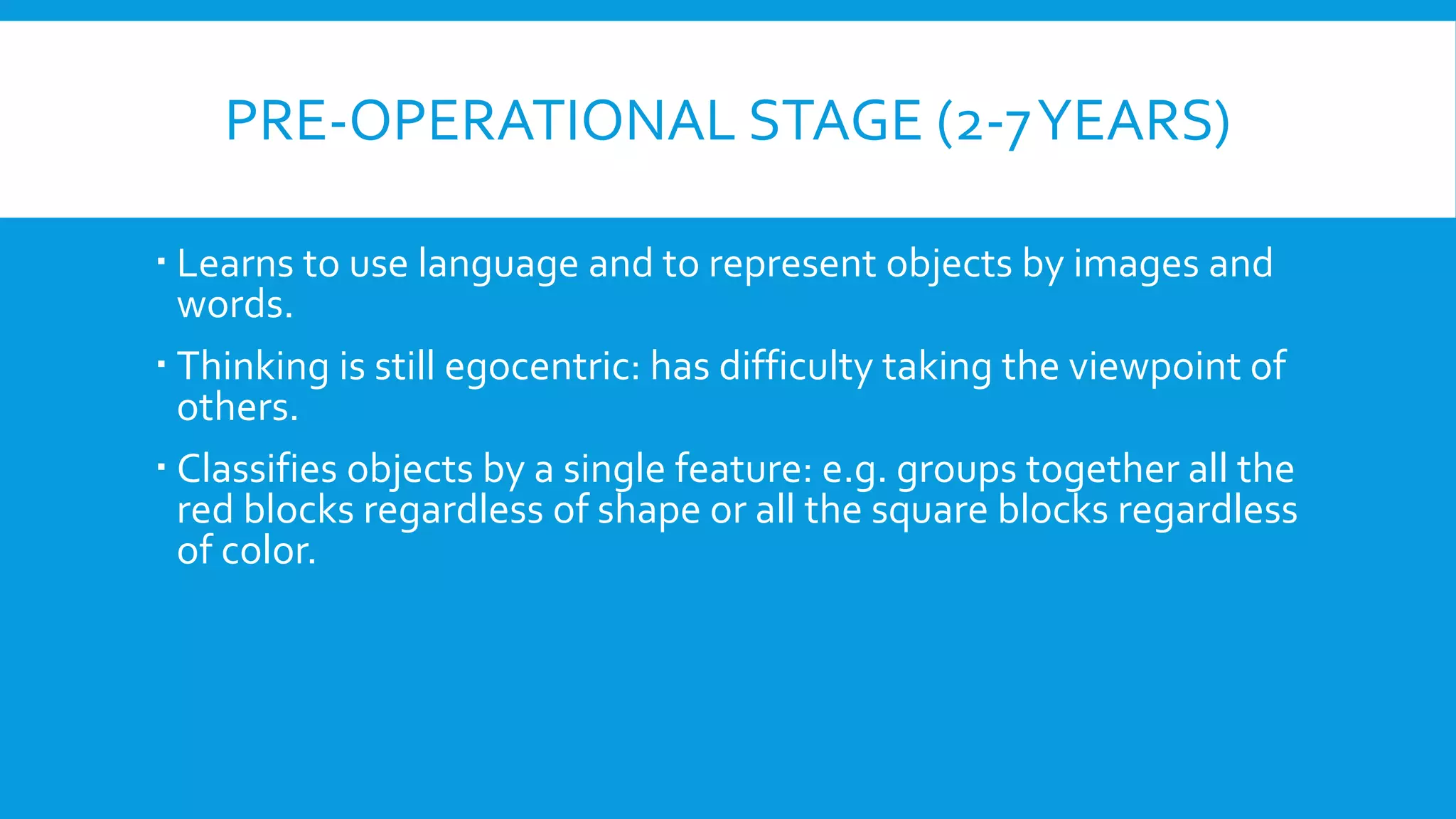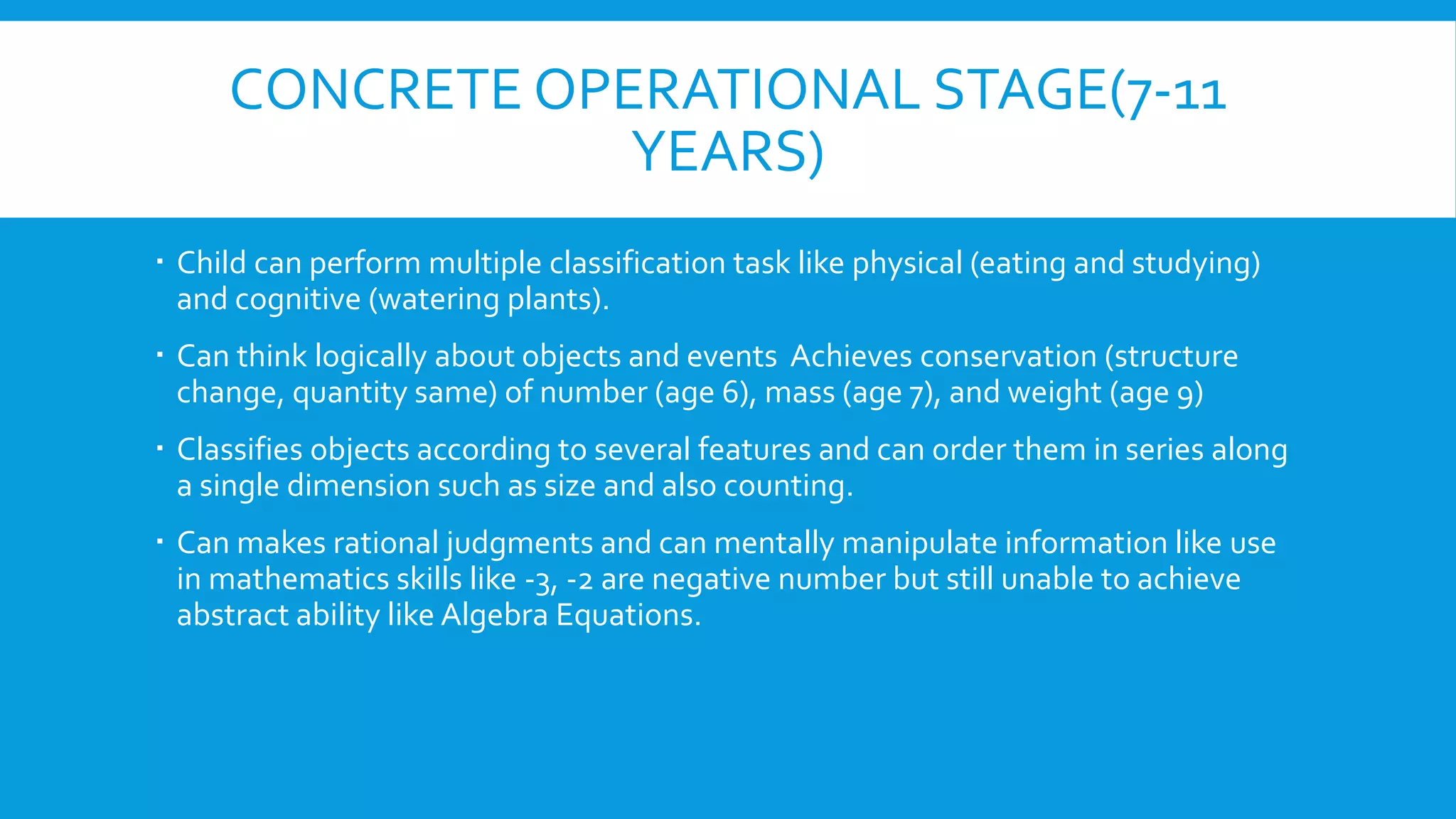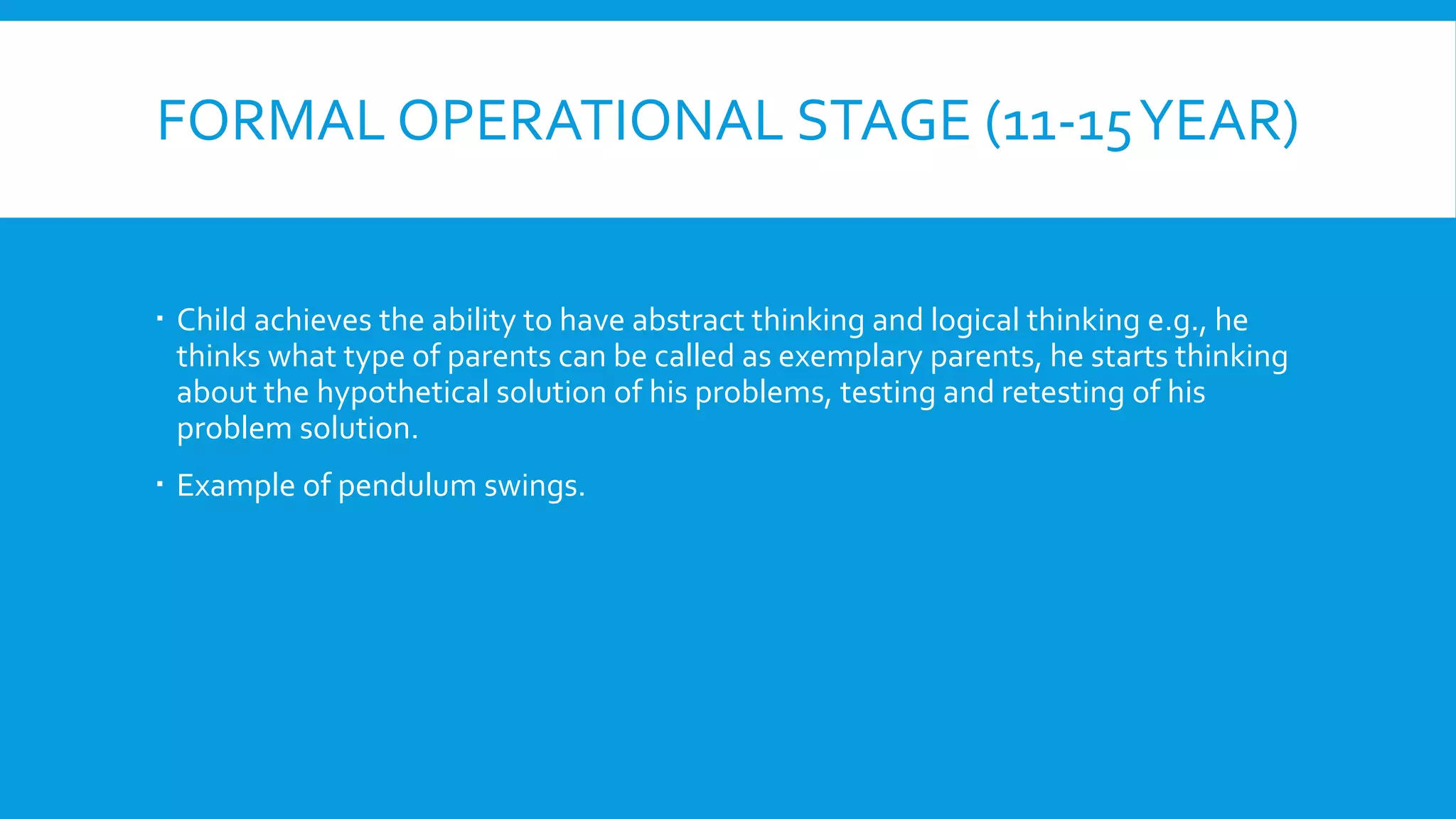Jean Piaget proposed four stages of cognitive development: sensorimotor, preoperational, concrete operational, and formal operational. In the sensorimotor stage from birth to age 2, infants learn about the world through senses and motor activities. From ages 2-7, the preoperational stage is characterized by egocentric thought and learning language. During concrete operations from 7-11 years, logical thought emerges about concrete objects. Finally, in formal operations from 11-15 years, abstract and hypothetical thinking develops.
